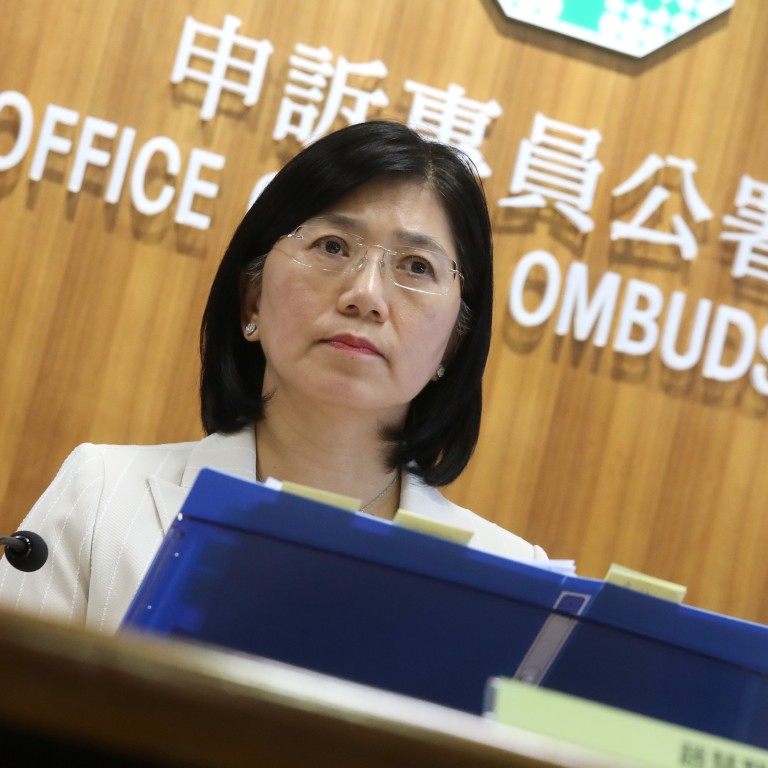
Coronavirus: ombudsman to investigate after masks made by Hong Kong prison inmates go for sale on open market
- Prisoners make masks for public sector workers, but boxes have appeared for sale in pharmacies, online, and elsewhere in the city
- Government staff have admitted taking boxes home at start of outbreak when supplies were plentiful
Some government staff have admitted they were able to get boxes of masks for personal use at the beginning of the outbreak, while boxes of masks were also sold online or in pharmacies.
At the same time, the supply of CSI masks was depleting quickly, and in early February government officials said only 10 million masks were left in stock, just enough for one month’s use by all departments.
“The community is concerned about the possible misuse of the CSI masks,” the ombudsman’s office said. “The media and members of the public have reported that CSI masks are available on the market, calling into question whether CSI masks have been misused or resold without authorisation.”
Ombudsman Winnie Chiu Wai-yin said the investigation would include examining the system and procedures regulating the production, distribution and stocktaking of the masks.
The Correctional Services Department (CSD) is responsible for the production, and the Government Logistics Department distributes the masks to departments for daily and contingency use.
“Where inadequacies are identified, I will make improvement recommendations to the departments concerned for closing any loopholes at source and avoiding any abuse of CSI masks,” Chiu said.
In 2019, the CSD supplied an average of 1.1 million surgical masks to the logistics department every month, with a small quantity being sold to non-governmental organisations, including social welfare organisations and schools.
A CSD spokesman earlier said about 120,000 masks were sold to NGOs last year, but declined to name them, or the amount sold.
The Post previously talked to 10 civil servants from various departments, and some executive officers said masks were in ample supply before the epidemic, so they allowed colleagues to take as many as they wanted, “like stationery”, without taking note of how many were taken.
Staff members from several departments admitted to taking boxes of masks.
These masks were also put on sale on online platforms, such as on eBay and Carousell, as well as in local pharmacies. People, including the elderly, have been seen wearing them in public.
Earlier in a reply to the Post, the ombudsman said it had received a dozen complaints from the public about the issue.
The city’s leader, Carrie Lam Cheng Yuet-ngor, said the CSD would investigate whether these masks had been leaked to the market inappropriately.

